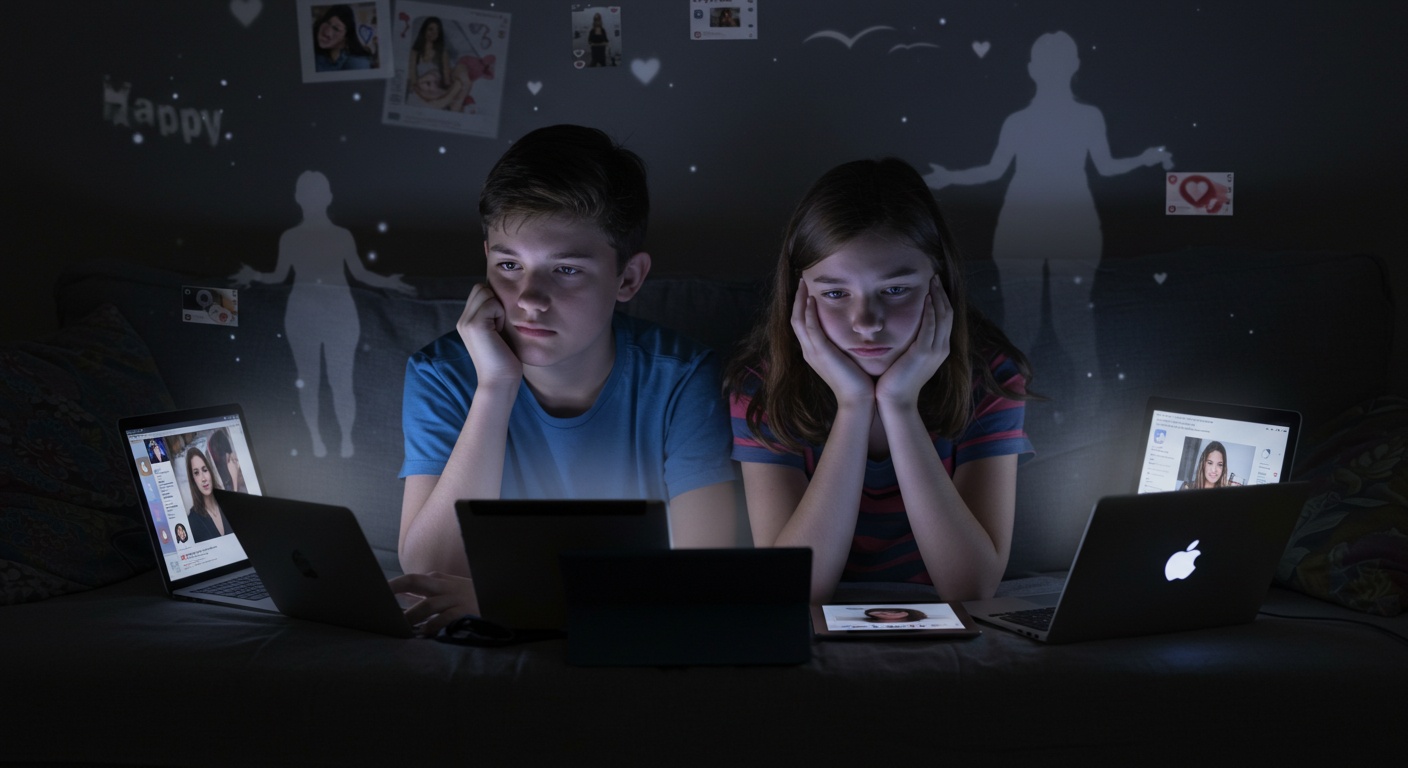
The Surprising Reality of Teen Depression
Here’s a question that keeps coming up again and again:
How many adolescents suffer from depression or anxiety?
The answer continues to shock those who don’t already know:
Nearly one in five teens experience some degree of depression.
That’s not just a statistic—it’s a wake-up call.
Even more concerning is that the numbers have been steadily rising over the past several decades. So, what’s driving this surge in teen mental health struggles?
The Surprising Influence of Modern Life
One unexpected culprit?
The very things we consider modern-day luxuries.
-
Social media (Facebook, Instagram, Snapchat, TikTok)
-
Texting
-
Digital downtime and screen binging
None of these things are inherently bad. But how teens interact with them—and how frequently—can heavily influence their mood, self-worth, and mental health.
The Illusion of Perfection: Social Media’s Trap
Platforms like Instagram or Snapchat showcase highlight reels—not reality.
Teens scroll through perfectly edited photos, fun trips, and endless smiles. What they don’t see is:
-
The fights before the selfies
-
The loneliness behind the smiles
-
The stress behind the filters
As a result, your teen might start thinking:
“Why is everyone else so happy, and I’m not?”
They compare someone else’s best moment to their own worst hour, and the emotional impact can be severe—often fueling sadness, isolation, and low self-esteem.
The Pressure to Be Seen and Loved
It doesn’t stop with scrolling.
Apps like iMessage show when a message is “seen,” and dating apps notify users if someone swipes right—or not. This leads to:
-
Waiting anxiously for replies
-
Wondering why someone didn’t respond
-
Obsessing over matches (or the lack thereof)
-
Feeling ignored, invisible, or unworthy
These platforms offer constant emotional highs and lows, and teens are often unequipped to handle that kind of rollercoaster.
The Role of Parents: You Might Be Surprised Too
Many parents don’t realize just how deeply these technologies affect their children. In a world where smartphones and tablets are introduced at younger ages, teens are being conditioned to seek:
-
Instant validation
-
Constant connection
-
Unspoken comparisons
And when those needs aren’t met, depression can creep in.
What You Can Do
You don’t need to ban technology. Instead, guide your teen toward healthy digital habits:
-
Encourage tech breaks and screen-free zones
-
Have open conversations about what they’re seeing online
-
Remind them that what people post isn’t the whole story
-
Help them build real-world confidence and self-worth
Final Surprising Answer?
Sometimes the biggest mental health threats don’t come from trauma or genetics.
They come from something as subtle and silent as a scroll.
“Social media creates a highlight reel. Depression lives in the behind-the-scenes.”
If your teen is struggling, don’t dismiss it as “just being dramatic.”
Take it seriously—and take action early.

